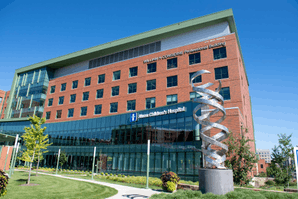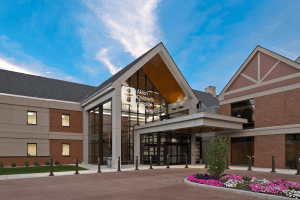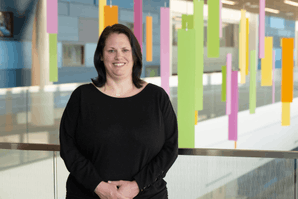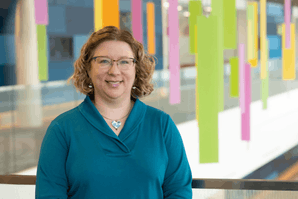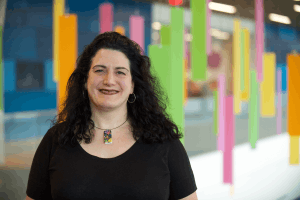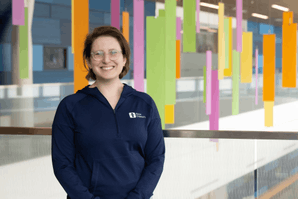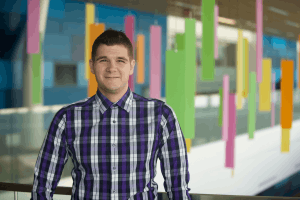Haslinger Family Pediatric Palliative Care Center
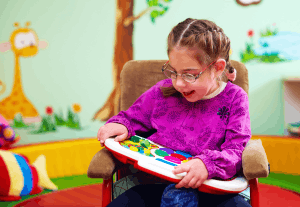
Our nationally recognized program has served as a model for other organizations in providing care to children with complex, chronic or serious medical conditions. Our goal is to enhance your and your child's quality of life in partnership with cure-directed care.
Learn more...Department: 330-543-3343
About Palliative Care
We offer specialized medical care for children with serious illnesses, including genetic disorders, cancer, prematurity, neurologic disorders, and heart and lung conditions. We focus on relieving symptoms, pain and stress of a serious illness and improving quality of life for both your child and family.
We also help with communication and coordination of care. With the close communication we provide, you're better able to choose options that are in line with your values, traditions and culture. This improves the well-being of the entire family. Our team includes
- Pediatric palliative care physicians
- Advanced practice providers
- Nurse case managers
- Social workers
- Bereavement coordinator
- Chaplain
- Child life specialists
- Expressive therapists
- Physical and occupational therapists
- Psychologists
- Pharmacists
- Dietitian
- Trained volunteers
We care for children of all ages from prenatal to young adult, as well as adults in our Adult and Pediatric Burn Institute.
We personalize care for each child and family, by allowing you to choose from a variety of available services, according to your needs. We have found our care to be most beneficial when we begin the journey with the family at the time of diagnosis and continue with them for as long as they may need.
A terminal diagnosis is not required. We care for children with both cancer and non-cancer diagnoses such as leukodystrophy, congenital heart disease, cerebral palsy and mitochondrial disease. Our palliative care program is also appropriate when:
- A complex illness is causing fragmented care, making communication and coordination difficult for a child's health care providers
- Families need additional support and resources
- Children can benefit from expert pain and/or symptom management
- Families would benefit from increased home-based services
- Usual treatment methods are no longer effective or are increasingly burdensome
- Hospital stays are becoming more frequent
- A patient's condition is declining
We also provide leadership in education, research and advocacy initiatives in pediatric palliative care locally, regionally, nationally and internationally.
Palliative Care, Akron
Akron Children's Pediatric Palliative Care, AkronConsidine Professional Building
215 West Bowery Street
Level 6
Akron, Ohio 44308
Fax: 330-543-3539
Map & directions
More about this location...
Hours
Appointments: 330-543-3343
Department: 330-543-3343
Palliative Care, Boardman
Akron Children's Pediatric Palliative Care, BoardmanLeonard J. Fisher Family Building
6505 Market Street, Building A
Suite 1210
Boardman, Ohio 44512
Map & directions
More about this location...
Hours
Appointments: 330-543-3343
Department: After hours or emergencies: 330-543-3343 / 330-543-1000
Cassandra Hirsh, DO, FAAHPM
Interim Director, Pediatric Palliative Care; Pediatric Palliative Care Physician
Sarah Elizabeth Friebert, MD
Pediatric Palliative Care Physician; Sarah Elizabeth Friebert, M.D. Leadership Chair in Pediatric Palliative Care
Daniel Phillips, MSN, APRN-CNP
Pediatric Nurse Practitioner; Pediatric Primary Care Mental Health Specialist

What families are saying…
“We were with them for about 18 years, until my daughter's passing. They helped us so much navigate through the system to get what we needed for {patient}. The day she passed away, Dr. Friebert was so caring and delicate, not only with {patient} but with our family as well. Fantastic department. All deserve recognition.”
— Tina Raber
Whether suffering is physical, emotional, social, spiritual or practical, Akron Children’s palliative care team provides treatment to relieve symptoms and conditions that cause distress and detract from a child’s enjoyment of life.
Help support this important program by donating to one of the funds benefiting the Haslinger Family Center for Pediatric Palliative Care.
- Colin James Carr Endowment Fund supports bereavement services and programs.
- Cushwa Family Pediatric Palliative Care Fund supports department staff with the intent on enhancing provision of home-based services for patients with life-threatening illness and their families.
- Austin Michael Davis Memorial Endowment Fund provides funding to support and enhance the projects and services of the Palliative Care Center.
- Sarah Elizabeth Friebert, MD, Leadership Chair in Pediatric Palliative Care Fund supports the director of the Haslinger Family Pediatric Palliative Care Center.
- Sarah Elizabeth Friebert, MD, Leadership I Pediatric Palliative Care Fund #2 provides funds to help support the Director of the Pediatric Palliative Care Center.
- Lauren Ellen Gartner, Forever in Our Hearts, Memorial Fund supports the Expressive Therapy Program.
- Haslinger Family Pediatric Palliative Care Center Fund helps defray unreimbursed costs associated with the center.
- Manny Rodriguez Patient Safety Education Fund supports the efforts to reduce or eliminate medical errors and improve patient safety.
- Stan and Roberta Marks Music Therapy Fund helps fund the music therapy program within the Emily Cooper Welty Expressive Therapy Center at Akron Children’s.
- Palliative Care General Fund provides support for equipment, supplies and education.
- Pediatric Palliative Care Education Fund supports programs, activities and supplies (equipment, books, travel, etc.) deemed beneficial to enhancing the education of the Pediatric Palliative Care team members, including those specializing in medicine, nursing, bereavement, case management, psychosocial support (social work, psychology, child life, spiritual care), nutrition, rehabilitation therapy, expressive therapy, and others.
- Pediatric Palliative Care (PPC) Family Fund assists families coping with the extreme financial stress of caring for children who have complex, chronic or serious medical conditions. The fund helps families with groceries and nutritional needs, transportation assistance, burial expenses and household expenses, primarily for families who do not meet the financial requirements of other assistance programs. Special items or experiences can also be funded for siblings.
- River of Life Fund supports families coping with the extreme financial stress of caring for a child with a complex, chronic or serious medical condition and assists with urgent expenses to allow families to stay at their child's bedside during a catastrophic illness.
- Hazel L. McKenna Memorial Fund provides support for bereavement, equipment and supplies for outpatient or inpatient use (when hospital resources are not available), as well as education, research and patient support.
- Boxout Palliative Care Assistance Fund is created through the generous contributions from Ron and Lydia Harrington and the employees of Boxout. All funds will be used to support patient families with financial burdens during their care.
- Robert and Hellen Mitten Palliative Care Chaplaincy Fund was established by Mark Mitten in honor of his parents, and challenges other donors to assist Dr. Sarah Friebert in providing additional chaplaincy services to children and families in need. The Mitten Chaplaincy reflects the care and compassion Mr. and Mrs. Mitten evidenced for members of the Akron community and their children.
The Haslinger Family Pediatric Palliative Care Center offers a variety of educational opportunities for students.
A 1-year or 2-year Fellowship is offered to physicians who have completed an accredited residency in pediatrics, IM/peds or family practice and wish to subspecialize in Pediatric Palliative Care.
A 4-week elective is offered to palliative care fellows in other accredited programs to enhance their pediatric knowledge.
A 4-week elective is offered to residents in accredited training programs.
A 4-week elective is offered to 4th-year medical students in accredited programs.
Shadowing experiences are offered to trainees in other programs or at other levels.
Learn more about educational opportunities for Residents and Students:
Palliative Care Elective (Medical Students)
Upcoming Events
Get Social with Palliative Care
Related Stories
By using this site, you consent to our use of cookies. To learn more, read our privacy policy.













